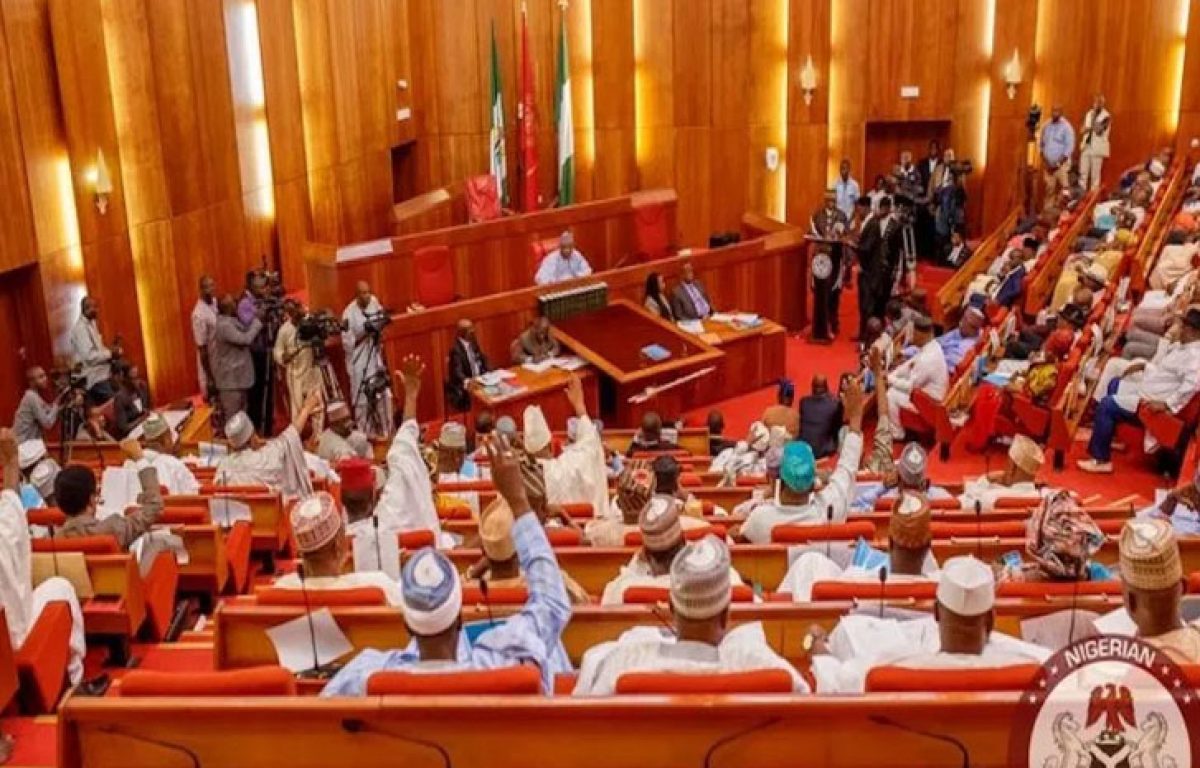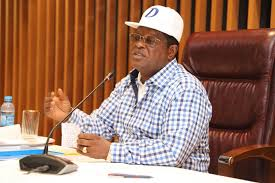Business
NCC Bows, Agrees To Settle With MTN

 The Nigerian Communications Commission (NCC) and telecoms giant, MTN may have reached an understanding as both parties have agreed to settle out-of-court on the fine imposed on MTN for not disconnecting unregistered lines according to NCC directions. Mathew OMEJE reports
The Nigerian Communications Commission (NCC) and telecoms giant, MTN may have reached an understanding as both parties have agreed to settle out-of-court on the fine imposed on MTN for not disconnecting unregistered lines according to NCC directions. Mathew OMEJE reports
All seems to be well between the NCC and MTN as the Executive Vice Chairman of NCC, Professor Umar Garba Danbatta, has explained that the Commission may consider MTN Nigeria plea to settle its dispute out of court. Speaking at an international press conference over the weekend, Danbatta explained that NCC’s counsels were already talking with MTN’s counsels on the issue of out of court deal.
According to him, “I can confirm that MTN still seeks out of court settlement. MTN is trying to get this issue settled amicably. We have been informed by our own counsel that the Honourable Judge handling the case has granted the request for a settlement on the matter.
“The intention is not to kill MTN because we would like the industry to continue. We would like it to be vibrant and I think this is a matter that needs to be resolved amicably and we are working towards that”, he said.
He pointed out that MTN had filed a law suit, but that the NCC was told by its lawyers late on Tuesday that it wanted an out-of-court settlement.
While speaking on the net worth of the sector, Danbatta disclosed that ICT has contributed over N500 billion in revenue into the coffers of the federal government and that there was every indication for the current 11 per cent contribution to the Gross Domestic Progression (GDP), to rise astronomically in the years ahead.
He also appealed to Nigerians to have their SIMs registered, and unveiled an eight point agenda on accessibility of service, affordability and availability of service.
It would be recalled that the telecommunications company, MTN, had sought an out of court settlement over the N1.04 trillion fine the Federal government through the National Communications Commission, slammed on it last year for failing to deactivate 5.1 billion unregistered phone lines.
MTN, which had initially dragged FG to court over the fine, arguing that it was outrageous, at a resumed hearing of the suit at the Federal High Court, Lagos recently, through its lead counsel, Wole Olanipekun, told the presiding judge, Justice Mohammed Idris, that they have considered settling out of court with the Federal government.
Following the request by MTN, the presiding judge adjourned the case to March 18, 2016 hoping that both parties would have reached an agreement before then.
The Federal government had reduced the fine to N780 billion after the company complained.
Meanwhile, the management of MTN had dared the federal government of Nigeria and said it will not pay the N780bn fine.
According a statement issued by the telecommunications firm ahead of the December 31, 2015 deadline issued by the NCC, the Public Relations and Protocol Manager at MTN Nigeria, Funso Aina, said when a case is in court, there was a limit to the comments that could be made on it.
“Suffice it to say that based on the lis pendens rule (pending legal action), all parties are enjoined to restrain from taking further action until the matter is finally determined. This is consistent with previous judicial decisions in Nigeria,” Aina stated.
He further said that notwithstanding the lawsuit, “we would continue to engage with the Nigerian authorities to try and ensure an amicable resolution in the best interest of the company, its stakeholders and the Nigerian authorities. We urge our customers not to panic as we do not envisage any disruption to our operations.”
Meanwhile, the Nigerian Communications Commission has revealed that within a period of one year, the GSM networks have added 16,511,295 lines, an increase of 12.28 per cent.
The report obtained from the NCC, shows that in September 2014, the total number of subscribers stood at 134,507,329 lines, the total number of subscription to all telecommunications networks rose to 151,018,624 by the end of August this year. This means that within a period of one year, 16,511,295 lines, an increase of 12.28 per cent have been added.
The continued growth in the GSM networks may not be unconnected to the increasing difficulty that subscribers have been facing in recent times.
The acting Executive Vice Chairman of the NCC, Prof. Umaru Danbatta, had at a public function in Abuja recently, acknowledged the problems being experienced by subscribers with the telecommunications networks.
According to him, the regulatory agency had stepped up its efforts to monitor and improve quality of service in the industry.
Danbatta said a quality of service task force had also been inaugurated to identify and recommend appropriate solutions to address the problem of poor quality of service from telecommunications operators.
Also, the report shows that the Code Division Multiple Access (popularly referred to as the CDMA) networks shrank as the lines in the network decreased from 2,406,382 lines to 2,125,941 lines within the one year period. This shows the dwindling fortunes of operators of the CDMA technology.
Although the CDMA operators deployed by Intercellular, Multilinks, Starcomms and Visafone preceded the introduction of the GSM technology in Nigeria, the technology has continued to decline as the GSM operators have over the years proved that they have better resources and market plan.
Similarly, fixed services declined from 190,719 lines in September 2014 to 189,523 lines by the end of August, 2015.
This shows that the growth in subscriber base in the country has been driven by the GSM operators, which include the four main service providers deploying this technology namely: MTN Nigeria Communications Limited, Globacom, Airtel and Etisalat.

Business
Senate Committee Commends Tinubu on Launch of National Halal Economy Strategy to Tap $7.7trn Global Market*

The Senate Committee on Finance has commended President Bola Ahmed Tinubu for launching Nigeria’s National Halal Economy Strategy, describing it as a bold and strategic move to position the country within the lucrative global halal market, estimated at $7.7 trillion.
In a statement signed by its Chairman, the committee praised the initiative as timely and aligned with international best practices. Several countries—including the United Kingdom, Canada, Australia, Malaysia, Indonesia, Saudi Arabia, the United Arab Emirates, Turkey, Brazil, Thailand, and Singapore—have successfully used halal frameworks to boost manufacturing, agricultural exports, financial markets, and foreign investment.
The committee highlighted Nigeria’s strong advantages for success in this space, including its vast agricultural resources, large domestic market, youthful population, growing manufacturing sector, and expanding services industry.
It noted that the strategy fits seamlessly into the Tinubu administration’s broader economic reforms, such as boosting non-oil revenue, diversifying exports, creating jobs, supporting small and medium enterprises (SMEs), and increasing foreign exchange earnings.
President Tinubu, represented by Vice President Kashim Shettima, officially unveiled the strategy on Thursday, February 6, 2026, at the Presidential Villa in Abuja.
The framework, developed in collaboration with Saudi Arabia’s Halal Products Development Company (HPDC) following a bilateral agreement signed in February 2025 at the Makkah Halal Forum, aims to enhance quality standards, certification processes, and competitiveness across sectors like food, pharmaceuticals, cosmetics, tourism, and ethical finance.
The committee described the strategy as inclusive, market-driven, and globally oriented, while fully respecting Nigeria’s diverse and pluralistic society.
It is projected to contribute significantly to the economy, with estimates suggesting it could add around $1.5 billion to Nigeria’s GDP by 2027 and unlock billions more in domestic value over the coming decade through expanded exports and investment.
The Senate Committee on Finance pledged its full legislative support, oversight, and cooperation to ensure smooth implementation, regulatory clarity, and long-term fiscal sustainability in the national interest.
“This decisive step reinforces Nigeria’s readiness to adopt proven international models, unlock new economic frontiers, and establish itself as a competitive player in the evolving global economy,” the statement concluded.
Business
Ex-Naval Chief Named in ₦100m Property Transaction Dispute
A property transaction dispute has emerged involving Zoe New Dawn Nigeria Limited and a former Chief of Naval Staff, following claims by the company’s chairman, Engr. Dr. Stephen Achema Akpa, that a ₦100 million payment made for land was not followed by a transfer of ownership.

According to Akpa, the payment was made in connection with a land transaction reportedly facilitated by the former naval chief. He alleged that despite documented payments, the land in question was neither transferred to the company nor was the money refunded.
Akpa said Zoe New Dawn Nigeria Limited possesses transaction records and related documents which, he claims, support its position in the dispute. He added that the company has initiated steps to seek redress through appropriate legal channels.
The matter has drawn attention due to the profile of the parties involved, particularly against the backdrop of recurring disputes linked to land ownership and property transactions in Nigeria’s real estate sector.
Industry observers note that unresolved land transactions remain a common source of litigation, often arising from disagreements over title documentation, intermediaries, and contractual obligations.
Zoe New Dawn Nigeria Limited stated that it intends to pursue the matter through lawful means to determine liability and recover any funds deemed outstanding.
As of press time, no official response had been issued by the former Chief of Naval Staff regarding the allegations. The dispute has not yet been confirmed as the subject of any court proceedings.
Business
Umahi Inspects Lekki Corridor’s 7th Axial Road Project, Expresses Confidence in CHEC

Minister of Works Senator Dave Umahi over the weekend inspected the progress of the 7th Axial Road project in the Lekki Corridor of Lagos.
The project, located behind the Dangote Refinery, is a crucial cargo handling route for the Lekki Deepwater Port and connects the Lekki Corridor with the Sagamu route.
The Minister expressed confidence in China Harbour Engineering Company Limited (CHEC), the project’s contractor, citing its successful delivery of the Lekki Deepwater Port and high-quality progress on the Makurdi-Enugu road reconstruction and expansion project. Umahi instructed that the roadbed filling work for Project LOT1 be completed by the end of April and directed the project team to accelerate resource input and tangible works to meet the deadline.
The 7th Axial Highway is expected to synergize with key infrastructure projects like the Coastal Road, Dangote Road, and Lekki Port, creating a comprehensive transportation hub model and boosting Nigeria’s port economy and industrial corridor. Umahi emphasized the need for environmental protection agencies to ensure efficient construction and steady progress while maintaining ecological safety.
A representative of CHEC who spoke during the inspection stated that the company would maintain a high level of resource input, implement the Minister’s directives, and coordinate safety, quality, and environmental protection to ensure the project’s timely and high-quality completion in other to unluck its port relief and regional economic benefits.
-

 Uncategorized5 years ago
Uncategorized5 years agoFG, states urged to harness flooding for ranching, others with technology – Agbaje
-

 Headlines10 years ago
Headlines10 years agoBreaking: EFCC seals Borno House of Assembly, as Hon members take to their heels
-

 News12 years ago
News12 years agoNigeria Security Operatives Stage Manhunt For Homosexual Perpetrator
-

 News9 years ago
News9 years agoHow 21-year-old Girl fled community over accusation of lesbianism
-

 News10 years ago
News10 years agoYobe Gov Moves Against Deputy
-

 Opinion7 years ago
Opinion7 years ago7 signs she has friend zoned you
-
Technology4 years ago
Online job placement company headhunts women
-

 Headlines10 years ago
Headlines10 years agoBorno Dep Gov Abducts Another Church Leader




